
RadNet acquired three more multimodality facilities on Tuesday, concluding the company’s second acquisition in as many months. The new purchase, Sonix Medical Resources, came from a bankruptcy proceeding in New York.

RadNet acquired three more multimodality facilities on Tuesday, concluding the company’s second acquisition in as many months. The new purchase, Sonix Medical Resources, came from a bankruptcy proceeding in New York.

For the first time in a year and a half, orders for Philips medical imaging equipment edged up in North America. It is the first tangible glimmer of hope that the great imaging recession may finally be over.
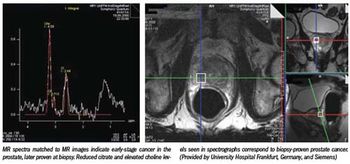
The idea of MR spectroscopy has been kicking around almost as long as MR itself. The allure is seductive: a noninvasive biopsy that quantifies in hard numbers the presence-or absence-of cancer.

Recently, there has been some debate in the radiology literature about the demise of general radiology, and with it people like me: general radiologists.
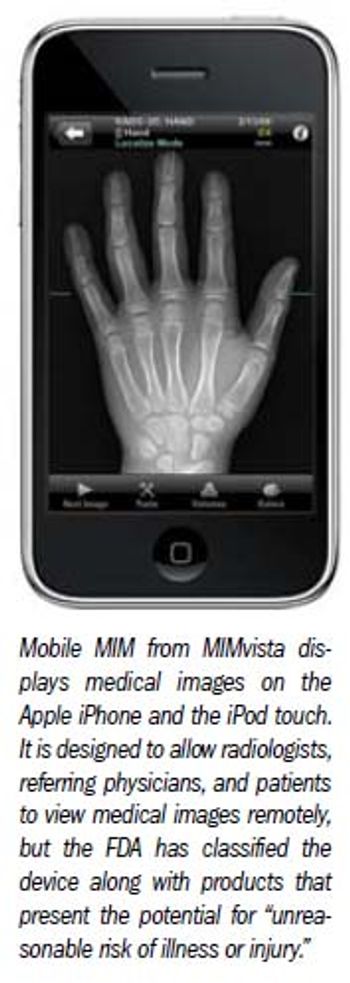
Mobile devices such as the iPhone and newly released iPad are attracting a lot of attention for how they might display medical images.
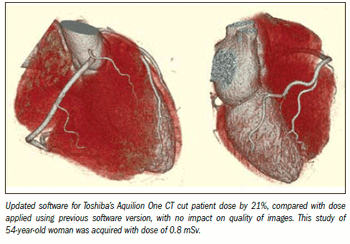
The means to reduce radiation dose are often at the fingertips of CT operators.

Reduced or no “padding” during ECG-triggered coronary CT angiography results in a substantial reduction in radiation dose without affecting image quality and interpretability, according to a study in the April American Journal of Roentgenology.

The use -- and cost -- of modern imaging was rising among Medicare patients with cancer as they entered the 21st century, according to research released April 27 by the Journal of the American Medical Association. From 1999 through 2006, imaging costs rose at a faster rate among Medicare beneficiaries than any other cost associated with their fight against cancer.

At the request of the American College of Radiology, House Energy and Commerce chair Rep. Henry Waxman (D-CA), Ways & Means Committee chair Rep. Sandy Levin (D-MI), and Ways & Means Subcommittee on Health chair Rep. Pete Stark (D-CA) have called on the General Accountability Office to perform a study regarding the effects of physician self-referral of advanced medical imaging and radiation therapy treatments on Medicare spending.

Support from hospital medical staff and bylaws that give the staff a stronger role in scrutinizing staffing decisions could help protect radiology practices against hospital management dropping their contracts, the administrator of one of the largest practices in the country contends.

Burdensome bureaucracy is penalizing many law-abiding radiologists in India, 16 years on from implementation of the Pre-Conception (PC) and Pre-Natal Diagnostic Techniques (PNDT) Act.
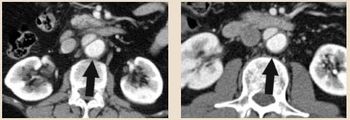
Korean researchers tested the ability of radiologists to spot CT images altered with commercially available software to introduce pathology and found that their skill is no more certain than the toss of a coin.

Radiologists express their diagnostic findings in words, their exam reports typically containing not a single image. They would be better served politically, and their referring physicians and patients clinically, if they shared their images as well as their conclusions.
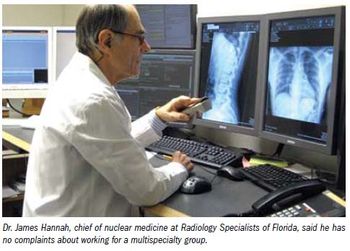
When Sutter Health Hospital in Sacramento, CA, recently terminated its contract with Radiology Associates of Sacramento, one of the largest and oldest practices in the U.S., the action sent shudders through elements of the radiology community.
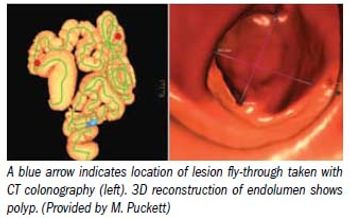
In the seven years since he came to Madison, Dr. Perry Pickhardt has done 7000 CT colonographies at the University of Wisconsin. Dr. Michael Puckett has been similarly successful in private practice with the San Diego Medical Imaging Group.

Over the past decade, teleradiology has become a well-established practice in Europe. But without homogenous EU legislation, experts are concerned about possible clinical risks. Radiologists and an EU representative compared advantages and warned of legal and medical risks during a joint session of the European Society of Radiology and European Commission held Saturday, March 6.

CT protocols used by researchers at Loma Linda University decreased radiation dose up to 95% when de-tecting distal ureteral calculi.

Collaborative educational seminars reduce the number of CT scans and the radiation dose delivered to emergency department patients suspected of pulmonary emboli, according to a study from a New York medical center.
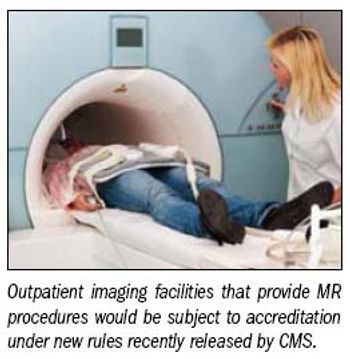
They couldn't be more different in their approach to accrediting radiology imaging centers.
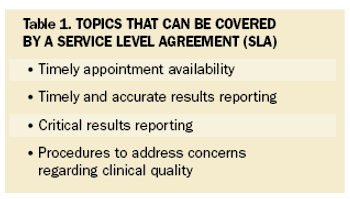
An established radiology practice in a growing community has enjoyed positive relations with the two hospitals it serves and the community physicians.

A consortium that will include more than 750 radiologists from 13 practice groups announced it was beginning operations this week. The consortium will focus on the business side of radiology, determining things like common billing platforms across the groups.

Never in the history of the Olympics has diagnostic imaging played such a huge role. For the first time ever at the Winter Olympic games taking place in Vancouver, Canada, all four modalities–digital radiography, ultrasound, CT, and MRI–are represented in both the Alpine and city settings.

Americans are scared. Some are frightened out of their wits. A radiologist recently told me about a patient with terminal pancreatic cancer who refused a CT ordered by his oncologist. Why? The patient said he was worried about radiation.

There has been considerable debate concerning President Obama’s healthcare reform initiative despite widespread agreement the U.S. healthcare system is in need of a significant and comprehensive overhaul.

As Diagnostic Imaging previously mentioned, most women at high risk for breast cancer come in for their breast MRI. However, claustrophobia and reluctant patients still exist. Below breast imagers offer their tips.